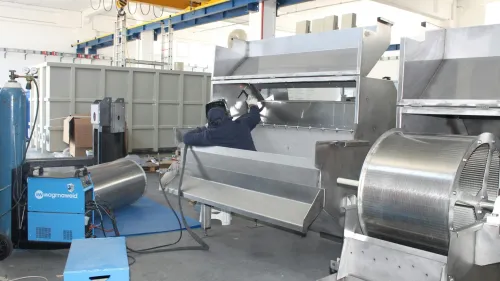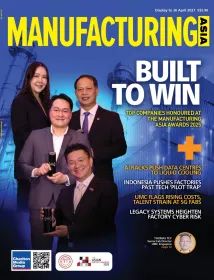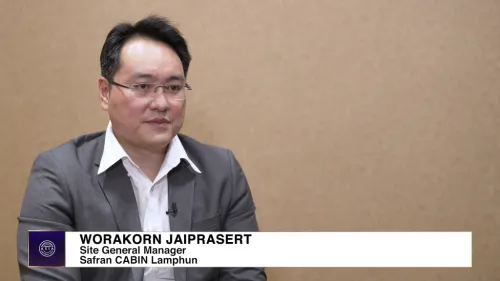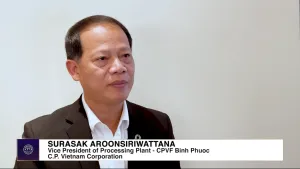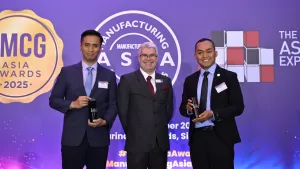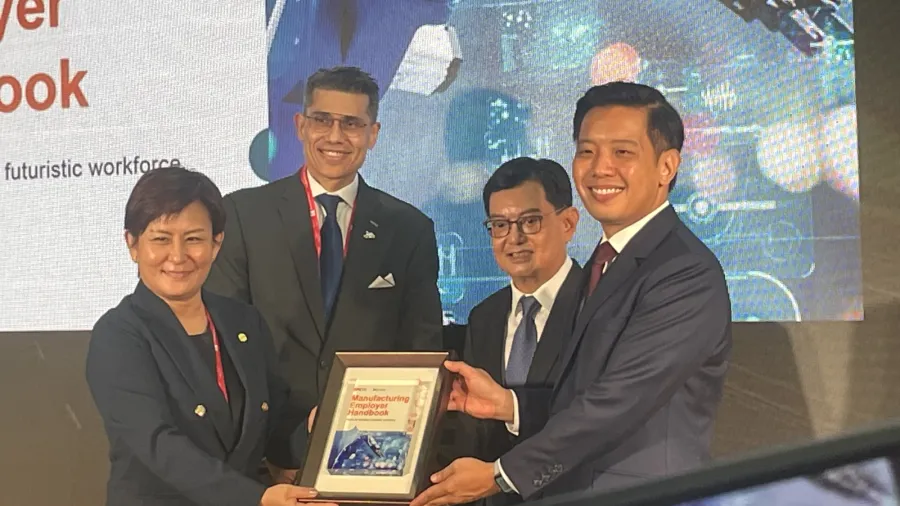
Singapore rolls out handbook for manufacturers to attract and keep talent
This is part of Singapore’s Manufacturing 2030 Careers Initiative.
Roles in manufacturing are the fourth most in demand by employers in Singapore based on a 2022 ManpowerGroup survey, but filling in talent in this industry is also one of the most difficult to do. This is why the government and other stakeholders created a handbook as a guide for employers to boost the hiring and retention of talent in manufacturing.
Minister of State for Trade and Industry Alvin Tan introduced the Manufacturing Employer Handbook at the Industry Transformation Asia Pacific (ITAP) 2022. The handbook was developed by the Singapore Precision Engineering and Technology Association (SPETA) and the Institute for Human Resource Professionals (IHRP), with support from Enterprise Singapore (EnterpriseSG).
“The Manufacturing Employer Handbook seeks to help manufacturers develop and adopt progressive human resource strategies to support their business growth needs,” Soh Leng Wan, assistant chief executive officer, of manufacturing and engineering at the EnterpriseSG, told Singapore Business Review.
There are also roadmaps for firms to enforce effective human resource practices that will attract manufacturing graduates from vocational and technical institutions to enter the industry through attractive internships and work placements.
“Tailored to address the talent attraction and retention challenges faced by manufacturers, the Handbook provides companies with guidelines on human resource practices, as well as tools and templates that can be readily adopted,” said Soh.
Handbook highlights
Some highlights of the handbook, Soh pointed out, are frameworks and resources to grow employee value propositions, attract early career professionals, and boost employee engagement.
Under the handbook, manufacturing firms are asked to study how to leverage internship programs as a way to engage young workers. There must also be early mentorship support for new hires in this industry.
The handbook also has strategies and solutions to resolve business needs and human resource issues within the manufacturing industry.
It also featured case studies of manufacturing firms “who successfully implemented workforce transformation in line with their business plans,” Soh pointed out. These case studies are local firms that implemented good human resource solutions to retain workers.
One of the case studies is Trend Technologies, in which the human resource team prioritised employee wellness by pushing for a positive work-life balance with limited overtime and respecting employees’ rest time. Its strong employer brand resulted in a high number of quality referrals.
Rank business priorities
Soh advised companies to “diagnose and rank their business priorities” based on the urgency and importance of each strategy before selecting a human resource tool to implement.
“Prioritisation will be key as there will always be constraints such as time, budget, and a lack of technical know-how when implementing such strategies,” Soh explained.
To oversee awareness and adoption of the handbook, Soh said SPETA, IHRP, and EnterpriseSG will coordinate with manufacturing companies and human resource coaches through workshops.
Training, internship opportunities
One of the government organisations also helping in driving talent for the manufacturing sector is the Economic Development Board (EDB). According to EDB, it is boosting the pre-employment talent pipeline by working with educational institutions for immersion and internship opportunities for this industry.
“To apprise students of the diverse job opportunities in the sector, the government will work with universities, polytechnics, and industry to provide more work-study training, immersion and internship opportunities,” Chang Chin Nam, senior vice president and head, semiconductors at EDB, told Singapore Business Review.
“For example, Micron and GlobalFoundries will be working with the Institute of Technical Education (ITE) to provide students with both internship and Work-Study Diploma opportunities,” he added.
To deepen the skillsets of ITE graduates, the EDB will also be working with firms to use new government schemes such as Accelerated Pathway for Technicians and Assistant Engineers.
Further, Chang said they will also collaborate with Institutes of Higher Learning and the Ministry of Education to address the talent needs of firms performing research and development in Singapore.
